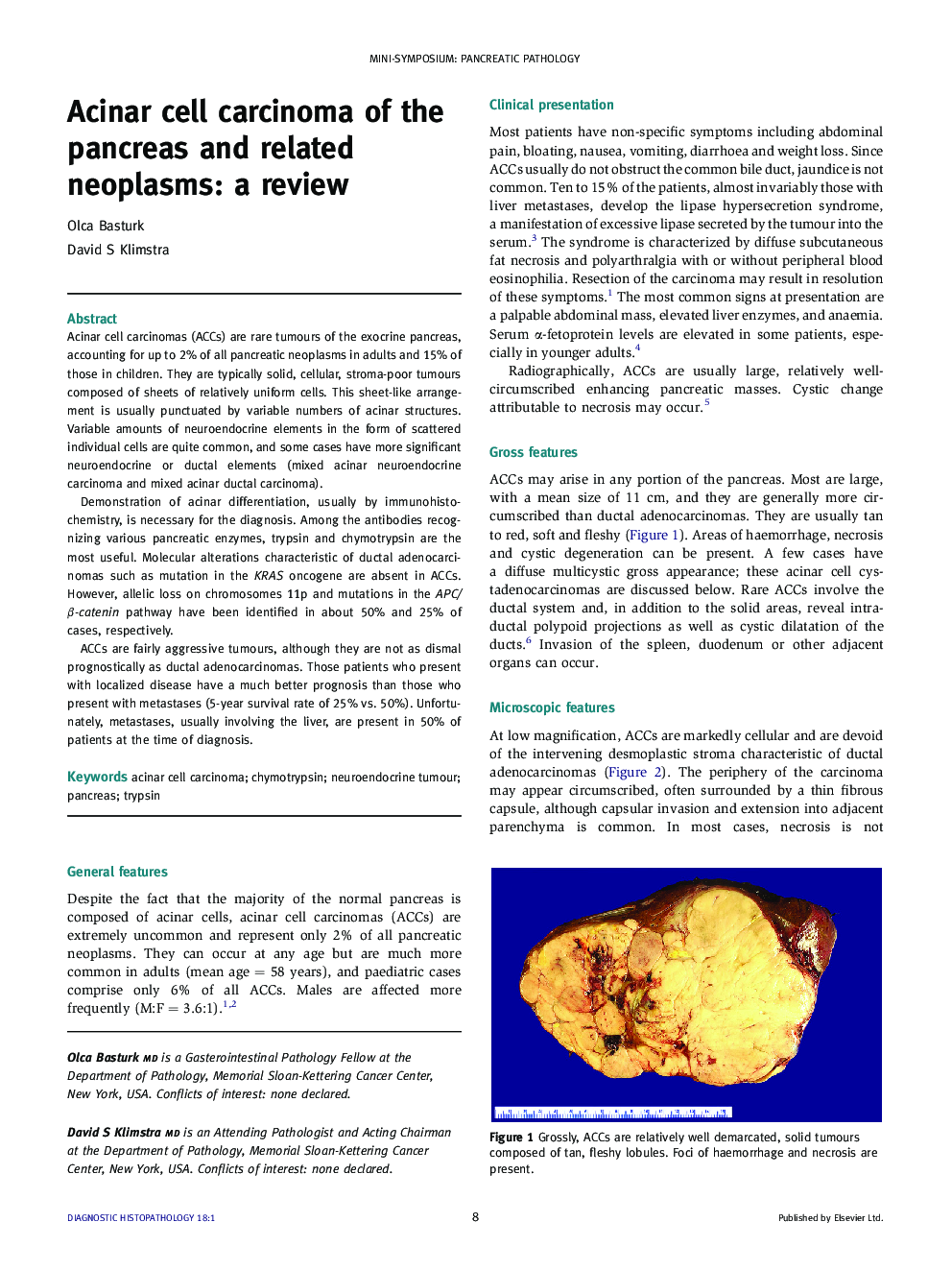| Article ID | Journal | Published Year | Pages | File Type |
|---|---|---|---|---|
| 6215251 | Diagnostic Histopathology | 2012 | 9 Pages |
Acinar cell carcinomas (ACCs) are rare tumours of the exocrine pancreas, accounting for up to 2% of all pancreatic neoplasms in adults and 15% of those in children. They are typically solid, cellular, stroma-poor tumours composed of sheets of relatively uniform cells. This sheet-like arrangement is usually punctuated by variable numbers of acinar structures. Variable amounts of neuroendocrine elements in the form of scattered individual cells are quite common, and some cases have more significant neuroendocrine or ductal elements (mixed acinar neuroendocrine carcinoma and mixed acinar ductal carcinoma).Demonstration of acinar differentiation, usually by immunohistochemistry, is necessary for the diagnosis. Among the antibodies recognizing various pancreatic enzymes, trypsin and chymotrypsin are the most useful. Molecular alterations characteristic of ductal adenocarcinomas such as mutation in the KRAS oncogene are absent in ACCs. However, allelic loss on chromosomes 11p and mutations in the APC/β-catenin pathway have been identified in about 50% and 25% of cases, respectively.ACCs are fairly aggressive tumours, although they are not as dismal prognostically as ductal adenocarcinomas. Those patients who present with localized disease have a much better prognosis than those who present with metastases (5-year survival rate of 25% vs. 50%). Unfortunately, metastases, usually involving the liver, are present in 50% of patients at the time of diagnosis.
